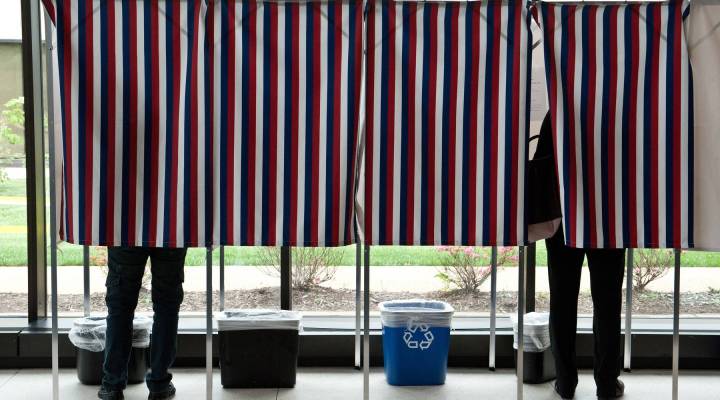
How personal finance is factoring into the election
How personal finance is factoring into the election

Jeremy Hobson: So I’m still trying to figure out if this weekend or next weekend is a holiday weekend, because the Fourth of July falls in the middle of the week this year. But either way, Independence Day is right around the corner. And to celebrate, we’re going to spend this week’s Money Matters segment talking about the how Americans are spending their money when it comes to politics.
Tess Vigeland is the host of our consumer finance show Marketplace Money and she joins us now. Good morning.
Tess Vigeland: Good morning, Jeremy.
Hobson: Well Tess, we always hear that the economy is the big issue for voters, but how much of that is the overall economy and how much of it is just personal finance?
Vigeland: Well of course, when you look at the macroeconomy, everything that happens there certainly affects our wallets and our bank accounts — our personal economies. But yeah, this is definitely an indicator for us when we’re choosing candidates. Bankrate.com did a survey recently that found six in 10 Americans say their personal financial situation is an important factor in their vote this year. In fact, some said it was the most important factor. But here’s the kicker, Jeremy: Half of those same respondents said no matter who wins, it’s probably not going to help their finances.
Hobson: So does that mean people are not getting involved in campaigns to try to at least influence the process and get the person in power that might help their finances, or what are they doing?
Vigeland: No, well, the recent numbers we have on that are back from 2009 from the Pew Research Center, and it showed that we are engaged — in fact, the more money you have, the more engaged you are in the political process. And here’s another indicator: How many of us are volunteering our time, free of charge, for the campaigns? The federal government says about 3.4 million of us are. So we are staying somewhat involved with both our money and our time.
Hobson: But of course, this year is different. We’ve got these big super PACs, these big money donors that can go and give $1 million or whatever to support their favorite candidate. Is that keeping ordinary people out of the process at all, do we know?
Vigeland: No, in fact, it’s not actually. The federal election campaign reporting from the first quarter of this year showed that contributions from us to candidates for Senate, House and the presidential campaign topped $363 million, and that was just in the first quarter. So we are not shying away from opening up our wallets for the politicians that we are giving low ratings to.
Hobson: Tess Vigeland, host of Marketplace Money. Thanks you so much.
Vigeland: Thanks Jeremy.
There’s a lot happening in the world. Through it all, Marketplace is here for you.
You rely on Marketplace to break down the world’s events and tell you how it affects you in a fact-based, approachable way. We rely on your financial support to keep making that possible.
Your donation today powers the independent journalism that you rely on. For just $5/month, you can help sustain Marketplace so we can keep reporting on the things that matter to you.


















